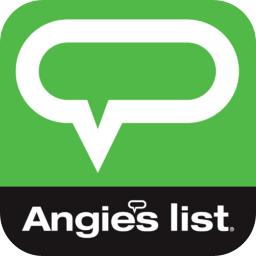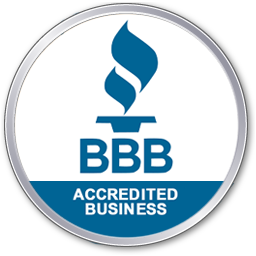Lead is commonly known as a naturally occurring element that has a variety of uses. While many of its applications are beneficial, there are potential risks associated with this element. Many houses built pre-1978 are often subject to elevated levels of lead due to the lead-based paints used for the interior of the home.
WHY YOU SHOULD HAVE MY HOME TESTED FOR LEAD
According to the National Health and Nutrition Examination Survey (NHANES), between 1999-2004, a spike in lead poisoning sickness among children led to widespread awareness of the potential dangers associated with lead.
The study published by NHANES found that residential areas that have experienced recent construction were at risk of having lead dust enter their homes. While the study’s subjects were primarily children in residential areas, there remains a possibility of lead contamination in other dwellings.
Metropolitan areas are also susceptible to lead contamination. The construction of new buildings can generate a radius of dust that is often accompanied by lead particles.
Whether it is a residential, commercial, or industrial property, lead particulates often find their way through the crevices of walls and the thresholds on doors and windows. Lead contamination is also a probability even after construction has finished. This is because lead particulates can settle on top-soil surrounding a newly-constructed site.
After settling, the lead dust kicks up into the surrounding atmosphere through a variety of means such as transportation, drafts, and general commute.
Lead is a malleable metal that can be found in a variety of plumbing components. Even in modern societies, many municipalities continue the use of outdated plumbing for everyday needs.
While cases of lead poisoning have certainly dropped over the years, there remains a chance that lead may still be present in whatever building you are in.
COMMON SOURCES OF LEAD
WATER
One major source of lead can come from plumbing, specifically, the solder used to join copper pipes together. Copper pipes with lead solders were commonly constructed in buildings and residential areas from the 1940s-1980s. Solder is usually made with a mixture of tin, lead, antimony, and silver. Over a stretch of time, the water begins to wear out solders and fixtures, causing bits of lead to leach out of and into the watercourse.
Get Your Water Tested For Lead
Lead can also be found in plumbing fixtures that use brass. Brass is an alloy of copper and zinc that often contains lead impurities, including chrome-plated brass fixtures. Most fixtures manufactured prior to 2014 may be a potential cause for lead in your water, especially in hot water.
Air
Another source of lead can come from paint. As previously mentioned, most buildings built before 1978 often used lead-based paint during the construction process. Presently, many homes and commercial properties still have lead-based paint on their walls. However, it is usually under many layers of newer paint.
Depending on the quality of the paint, these new layers usually mask the lead paint, causing no problems. Flaking paint can pose potential health risks as these flakes are often very small and can mix with dust.
Lead paint removal is a necessary process, in many cases, to protect the occupants of a home or commercial facility where it is present.
The abatement process has to follow certain guidelines for removal and disposal and should only be performed by a licensed contractor.
Building construction is another source of lead contamination. As previously mentioned, building materials such as alloys and certain metals are sawed, formed, sanded, and sutured into the building’s design. This process, accompanied by wind and drafts, shuttles the lead dust into surrounding environments.
The Lead Abatement Process
The abatement process for lead can be handled in a variety of ways.
- The first step in lead abatement begins with spotting and monitoring any hotspots within a given area. This is done through flat-surface wipe testing, visual inspection of interior paint, and the use of X-ray Fluorescence monitoring.
- Once the hotspots are surveyed, the abatement process begins. If lead particulates were airborne, common practices would be the removal of contaminated metal components for off-site cleaning, lightly spraying down various contaminated door and window components, replacement of door jambs, and enclosing any crevices or walls that produce lead dust.
- For contaminated water, sufficient replacement of pipe solder and fixtures can remedy lead contamination. For good measure, the use of filters will ensure the blockage of other particulates in your water.
Ways You Can Minimize the Risk of Lead Poisoning
- Wipe down flat, dusty surfaces with a damp paper towel near windows and doors. Throw away the towel.
- Mop floors with a damp mop to control dust.
- Take off shoes when entering the house to avoid tracking in the dirt that may be contaminated.
- Vacuum carpets to remove dust, ideally with a HEPA filter.
- Pick up loose paint chips with a damp paper towel.
- Use only cold water for drinking and cooking.
- Install filtration systems for your everyday water needs
- Run water for 15 to 30 seconds before drinking it, especially if you have not used your water for a few hours.
- Test for lead by calling the professionals at Alpha Environmental Services, Inc.
Does my Homeowner’s Insurance cover Lead Abatement?
It is dependent on the homeowner’s level of coverage. Most insurance companies offer “pollution exclusion” clauses that are included in the Home-owner’s insurance plan. For more information, please contact your Homeowner’s Insurance provider to check your coverages.
For more information on Lead Testing and Abatement, feel free to contact us today or give us a call at 503.406.6686 for more informatio




